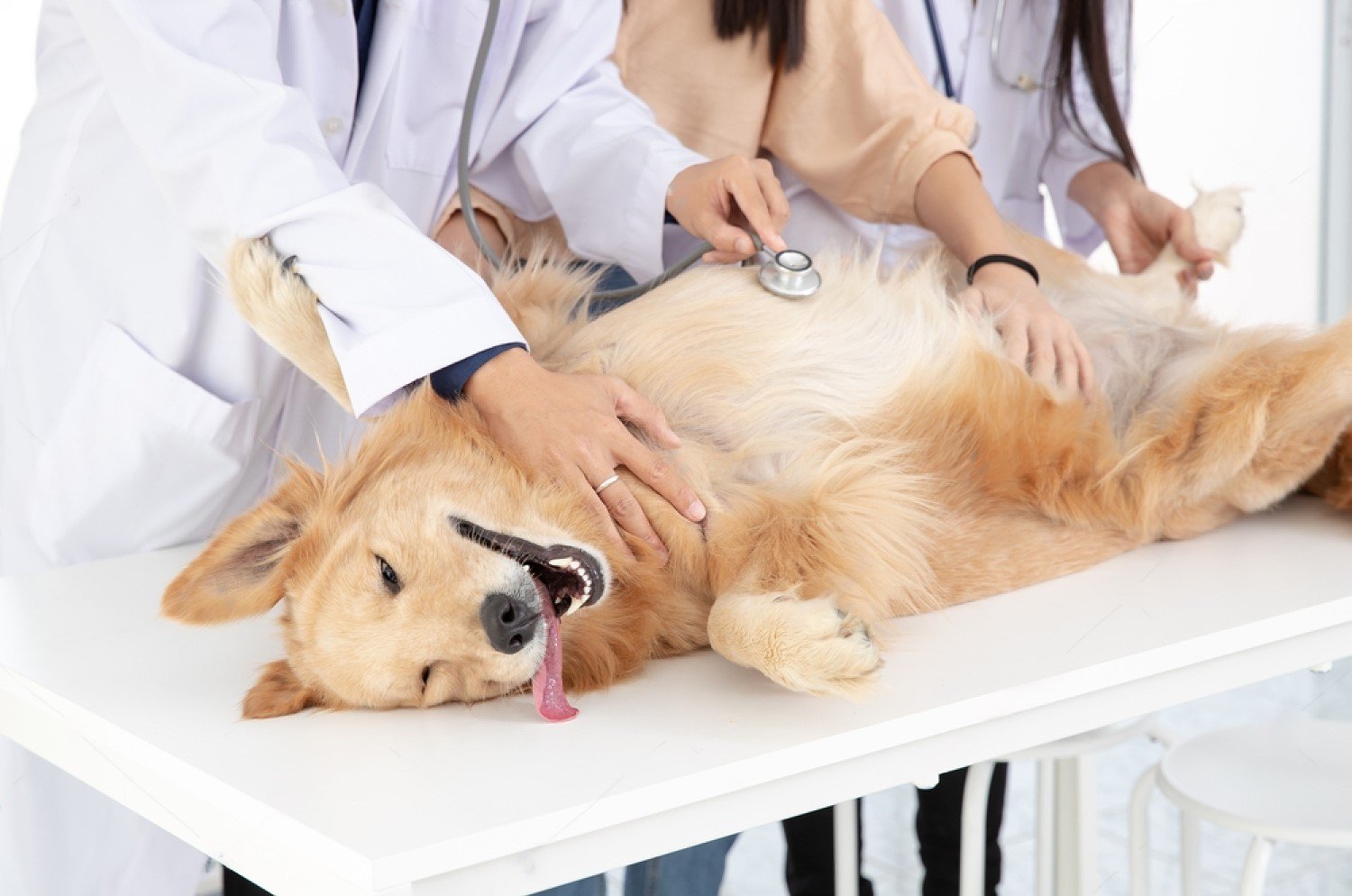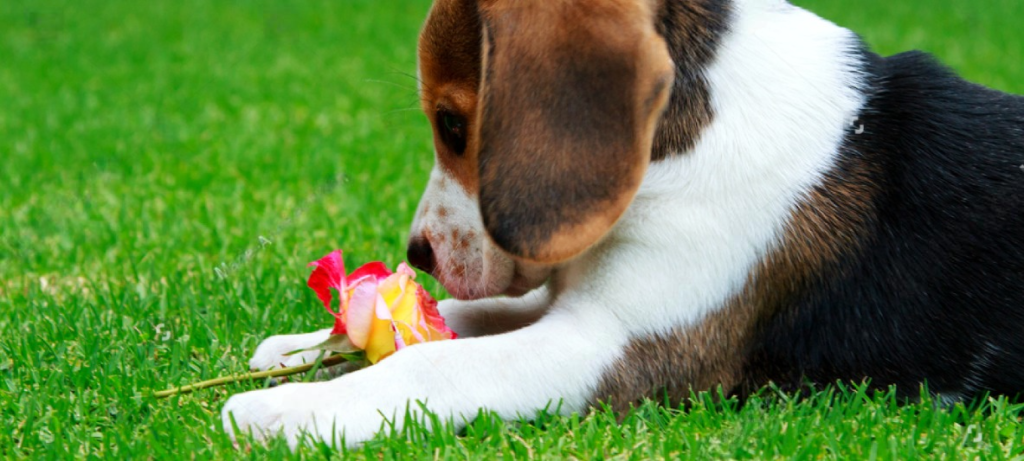Neutering is a crucial decision for any dog owner, but knowing when to do it can be challenging. Recognizing the signs your dog needs to be neutered is essential for both their health and your peace of mind. Early detection of these signs can prevent a range of behavioral and health issues that may arise as your dog matures. For instance, behaviors like increased aggression, excessive roaming, or marking territory can indicate that it's time to consider neutering. Understanding these signs not only helps in managing your dog’s behavior but also contributes to their overall well-being. If you're noticing any of these changes in your dog, it's important to consult with your veterinarian to determine if neutering is the right step. By recognizing the signs that your dog needs to be neutered, you can make an informed choice that benefits both your dog’s well-being and your household.
Neutering is a surgical procedure performed by a veterinarian to remove a dog’s reproductive organs, specifically the testicles in males. This procedure is commonly recommended to prevent unwanted litters, reduce certain health risks, and manage behavior. Neutering is usually performed under general anesthesia and is considered a routine surgery with minimal recovery time. By removing the reproductive organs, the dog’s ability to reproduce is eliminated, which can also influence hormone-driven behaviors.
There are several myths surrounding neutering that may discourage dog owners from considering it. One common misconception is that neutering will drastically change a dog’s personality, making them less playful or energetic. In reality, neutering does not alter a dog’s core personality but can reduce aggressive or territorial behaviors. Another common myth is that neutering will lead to weight gain in dogs. While metabolism can slow slightly after the procedure, proper diet and exercise can easily manage weight. It's also a myth that neutering is unnecessary if a dog is well-behaved. Even well-behaved dogs can benefit from neutering, as it reduces the risk of certain health issues.
Neutering offers several long-term health benefits for dogs. One of the most significant advantages is the reduction in the risk of testicular cancer, as the removal of the testicles eliminates the possibility of developing this disease. Additionally, neutering reduces the risk of prostate problems, which can cause difficulty urinating and discomfort in intact males. Behaviorally, neutering can lead to better management of aggression, roaming, and marking behaviors, making dogs more manageable and less likely to get into conflicts with other dogs. Overall, neutering contributes to a healthier, more balanced life for your dog, reducing the likelihood of health complications and behavioral issues as they age.

Sudden Onset of Aggression: As intact male dogs mature, they may become more aggressive due to increased testosterone levels. This hormone-driven aggression can appear suddenly, even in dogs that were previously calm and well-behaved. This behavior often manifests in situations where the dog feels the need to assert dominance or protect its territory. If your dog is showing signs of sudden aggression, especially towards people or other animals, neutering may help reduce this behavior.
Aggression Towards Other Dogs: Aggression can escalate, particularly in male-to-male encounters. Intact males often see other males as competition, leading to fights or aggressive displays. This behavior is not only stressful for the dog but can also be dangerous, potentially resulting in injuries. Neutering can help mitigate this aggression by reducing the hormone levels that fuel these territorial disputes.
Frequent Urination Indoors: Marking territory by urinating indoors is a common issue in intact males. This behavior is driven by the need to establish dominance and claim ownership over their environment. If your dog frequently urinates in the house, especially in new or unfamiliar places, it could be a sign that neutering is needed to curb this behavior.
Marking in Public Places: Marking behavior can also extend outside the home, leading to social challenges. Dogs that mark in public places may do so repeatedly, even during walks, which can be embarrassing or inconvenient for owners. This behavior is particularly problematic in settings like dog parks or other public areas where marking can lead to conflicts with other dogs. Neutering often reduces or eliminates this marking behavior, making your dog more socially acceptable in public settings.
Escaping From Home: Intact dogs, especially males, may have a strong urge to roam in search of a mate, leading to frequent attempts to escape from home. This behavior is not only stressful for owners but also dangerous for the dog, as they may encounter traffic, wildlife, or other hazards while roaming. Dogs that frequently escape are also at risk of being lost or stolen. Neutering can significantly reduce this urge to roam, keeping your dog safer and more content at home.
Risk of Getting Lost or Injured: When a dog roams far from home, the risks of getting lost or injured increase dramatically. Dogs that wander may face dangers such as busy roads, hostile animals, or harsh weather conditions. Additionally, a roaming dog is more likely to encounter situations that lead to fights or accidents. By neutering your dog, you can decrease the likelihood of these dangerous behaviors, ensuring they stay closer to home and out of harm's way.

Pain or Discomfort in the Groin Area: Intact dogs may exhibit signs of pain or discomfort in the groin area, which is often overlooked. Symptoms can include whimpering, reluctance to be touched, or difficulty sitting comfortably. If your dog is showing signs of discomfort around the groin, it could be related to testicular issues. Neutering can relieve this pain by removing the source of the problem, leading to a more comfortable and healthier dog.
Difficulty Urinating:Intact male dogs are at risk of developing prostate enlargement, which can lead to difficulty urinating. You might observe your dog having difficulty urinating, making frequent trips outside, or showing blood in their urine. Prostate problems can cause significant discomfort and may lead to more severe health issues if not addressed. Neutering helps reduce the size of the prostate, alleviating these urinary problems and improving your dog’s quality of life.
Frequent Urinary Infections:Recurrent urinary infections can be a sign of underlying prostate issues in intact dogs. These infections may cause your dog to urinate more often, experience discomfort, or have an unusual odor to their urine. Frequent infections can indicate that the prostate is not functioning properly, and neutering can help prevent these infections by addressing the root cause of the problem.
Discomfort During Movement: Hernias can cause noticeable pain and discomfort, especially when your dog is moving or playing. You might observe your dog being less active, showing signs of pain when walking, or avoiding certain movements. Addressing hernias promptly with neutering can relieve this discomfort and prevent further complications, allowing your dog to return to their normal, active lifestyle.

Hyperactivity or Inability to Relax: Intact dogs often exhibit signs of nervous energy, leading to hyperactivity and difficulty relaxing. This is commonly due to elevated testosterone levels, which can cause your dog to be overly excitable and restless. You might notice that your dog struggles to settle down or seems constantly on edge. This kind of behavior can disrupt your household and impact your dog’s overall well-being. Neutering can help reduce these symptoms by balancing hormone levels, leading to a calmer, more relaxed dog.
Destructive Behavior When Left Alone: Separation anxiety is another common issue in intact dogs. When left alone, they may engage in destructive behavior, such as chewing furniture or digging. Hormonal influences can exacerbate these feelings of anxiety, making it harder for your dog to cope with being alone. By neutering, you can help reduce the hormonal triggers that contribute to separation anxiety, leading to a more stable and less destructive behavior pattern when your dog is left by themselves.
Constant Mounting of People or Objects: Intact dogs may display obsessive mounting behavior, where they continually mount people or objects. This behavior is often driven by hormonal urges and can become a persistent and embarrassing issue. For owners, it can be frustrating and difficult to manage, especially if the mounting behavior becomes a frequent occurrence. Neutering can help reduce or eliminate this behavior by addressing the hormonal causes behind it, making your dog’s interactions more appropriate and less disruptive.
Social Challenges with Other Dogs: Mounting behavior can also lead to social challenges with other dogs. Intact males, in particular, may mount other dogs as a way to assert dominance or due to hormonal drives. This can lead to conflicts, fights, and social tension, especially in dog parks or group settings. By neutering your dog, you can help reduce these dominant behaviors, making it easier for your dog to get along with others and enjoy more positive social interactions.

Risk of Testicular Cancer: Intact male dogs face a higher risk of developing testicular cancer as they age. Testicular tumors are more frequently seen in older dogs that have not been neutered.This type of cancer can be serious and sometimes life-threatening if not detected early. By neutering your dog, you significantly reduce their risk of testicular cancer, helping them lead a healthier and longer life.
Impact on Life Expectancy: Unneutered dogs are more likely to face various health risks, which can impact their life expectancy. Health issues such as prostate problems, testicular cancer, and certain infections are more prevalent in intact dogs. These conditions can lead to a shorter lifespan if left untreated. Neutering not only reduces these health risks but also contributes to a longer, healthier life for your dog.
Difficulty in Training: Certain behaviors, such as aggression, marking, and excessive roaming, can become entrenched if not addressed early. Intact dogs are more likely to develop these behaviors, and once they become habitual, they can be much harder to train or correct. Neutering can help prevent these behaviors from becoming ingrained, making training and behavior management easier and more effective.
Socialization Challenges: Intact dogs may struggle more with socialization compared to neutered dogs. Hormonal drives can lead to aggressive or dominant behaviors that hinder positive interactions with other dogs and people. This can make socialization more challenging and lead to social issues that persist throughout their lives. Neutering helps mitigate these behaviors, making socialization smoother and more successful, allowing your dog to enjoy better relationships with other pets and people.
Tailored Advice for Your Dog: Each dog is unique, and a one-size-fits-all approach may not be suitable. Consulting with your veterinarian offers personalized guidance customized to your dog’s unique needs.Your vet can evaluate your dog's age, breed, behavior, and health status to offer recommendations on neutering and other health concerns. They will provide guidance based on your dog's individual circumstances, helping you make informed decisions that are best for their well-being.
Discuss the Ethical Considerations Surrounding Neutering and How to Make an Informed Decision:
Neutering is a common procedure with clear benefits for controlling pet populations and preventing certain health issues. However, it also raises ethical questions related to animal rights. Some people argue that neutering is a form of unnecessary surgery and can impact a dog’s natural behaviors. To make a well-informed decision, consider the following:
Animal Welfare: Neutering helps prevent unwanted litters and reduces the risk of certain health problems, which can be seen as a benefit to animal welfare.
Veterinary Recommendations: Consult with your vet about the potential benefits and risks for your specific dog, ensuring that you make a decision that aligns with both ethical considerations and your dog’s health needs.
Address Potential Risks Associated with Neutering That Are Often Downplayed, Such as Surgical Complications or Rare Behavioral Changes.
While neutering is generally safe, it's important to be aware of potential risks that are sometimes underrepresented by high authority sites:
Surgical Complications: Although rare, complications can occur, such as infections or adverse reactions to anesthesia. To make an informed decision, it’s important to discuss these risks with your vet and determine if your dog is a suitable candidate for the procedure.
Behavioral Changes: Some dogs might experience rare behavioral changes, such as increased anxiety or changes in energy levels. These issues are not common but should be considered when weighing the decision to neuter.
Explore the Emotional Toll and Financial Investment of Neutering, Often Glossed Over by High Authority Sites. Neutering can have both emotional and financial impacts on dog owners that are sometimes overlooked:
Emotional Impact: The decision to neuter can be emotionally challenging for some owners who are concerned about their dog’s well-being or the ethics of the procedure. It’s important to consider your feelings and discuss them with your veterinarian to make the best choice for your dog.
Financial Investment: Neutering involves surgery and post-operative care, which can be a financial investment. Costs may include the procedure itself, follow-up visits, and any necessary medications. Understanding these costs helps you prepare for the financial aspects of neutering.
Recognizing the signs your dog needs to be neutered can help you make informed decisions about your pet’s health and well-being. We’ve covered key signs such as increased aggression, marking territory, excessive roaming, and physical health issues like testicular tumors and prostate problems. If you notice any of these signs in your dog, it’s important to consult your veterinarian for a professional assessment. They can offer personalized advice tailored to your dog’s unique needs.Responsible pet ownership means making informed decisions, and understanding the benefits and potential risks of neutering is a crucial part of that. By staying vigilant and seeking professional guidance, you ensure a healthier, happier life for your furry friend.